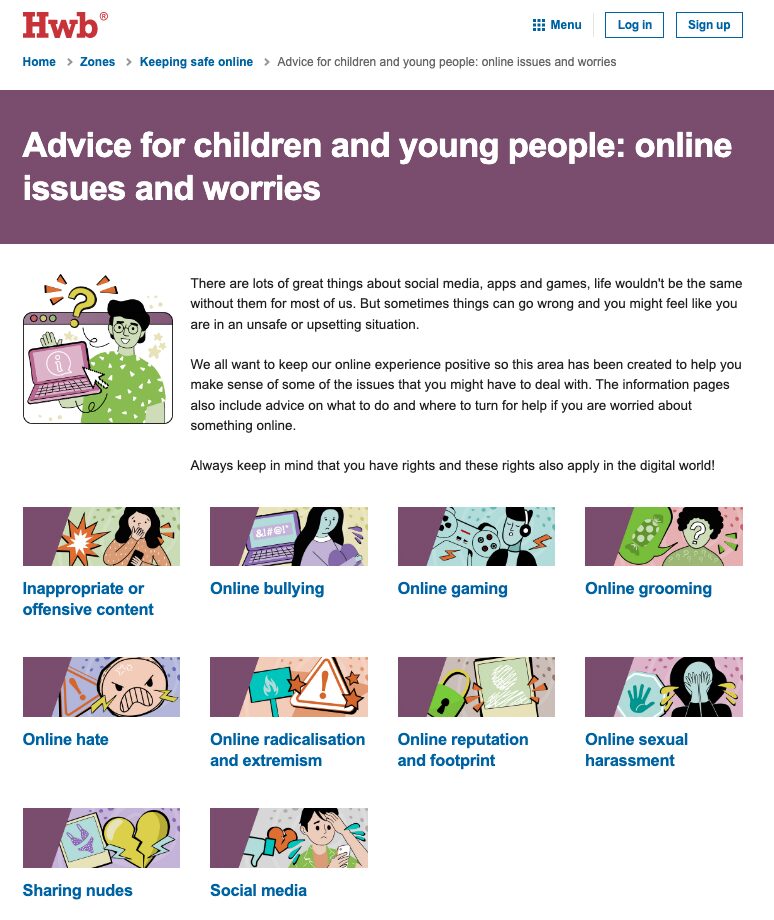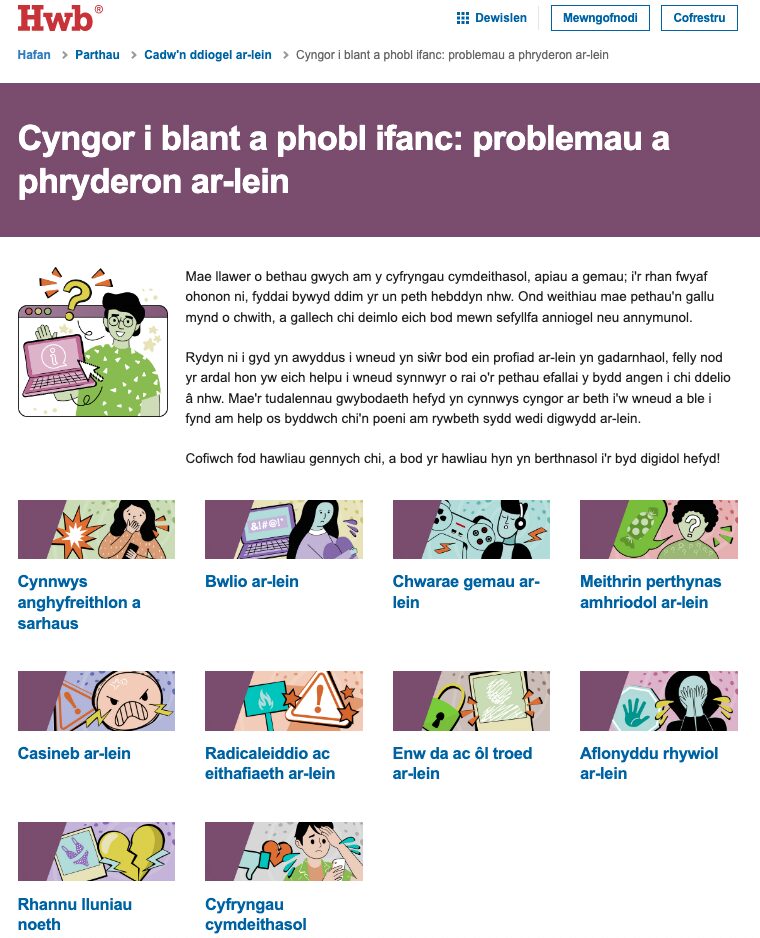
Welsh Government – Hwb

Developing online safety information for young people on Hwb

Client
Welsh Government

Sector
– Children and Young People
– Education
– Online Safety

Partners
– EYST
– Ysgol David Hughes
– Ruthin School
– Ysgol Cedewain
– Deighton Primary School

Services
– Youth Consultation
– Co-design
– Digital Youth Information
– Content Development
– Graphic design
Welsh Government wanted to develop their online safety information on the Hwb learning platform with information directed specifically toward children and young people. ProMo was tasked to speak with children and young people so we could develop bespoke advice to support them with any online issues or worries they were experiencing.

Our approach
With over 20 years of experience delivering digital youth information projects and co-design, the first step was to talk with young people about the information they needed.
We conducted six focus groups virtually with 53 young people aged 9 to 15 across Wales. Google Jamboard, a virtual whiteboard tool that allows you to collaborate and see updates in real-time, allowed us to gather information from young people in a fun and confidential way. We found out about their understanding of some key online issues. They shared their experiences and the terms and language they used. We discovered how they typically deal with issues and where they go for help. We also found out if there were any barriers to getting that help.
From this came ten different online safety issues, ranging from online bullying to sharing nudes to offensive content. We brought them to life by developing scenario stories or asking varied questions to encourage discussion and engagement. We had multiple-choice votes with follow-up discussions, agree/disagree statements, a drawing tool, pros and cons lists, scenario stories and open-ended questions such as ‘How do you think he might have felt after watching the video?‘

Outcomes
Lots was learnt from these focus groups about how young people use different platforms for different purposes. Some are set to private, some public, depending on what they used them for.
“I’m not setting it to be private. I want to be YouTube famous!”
Seeing upsetting or disturbing content was common on their social media feeds. Most were aware that clicking on links affected algorithms and what they saw on their feeds.
“It’s curiosity killed the cat – the more you click, the more you see.”
This is just a tiny snapshot of what we learned. Lots of information was gathered that gave us valuable insight into the way that young people behave online. It also made it clear that whatever guidance was given to them, inevitably, there would be times when things go wrong. Having a source of independent, reliable information would benefit them.
Another interesting factor was that many said they would talk to someone they knew if they were worried about something. This could be a friend, family member, teacher etc. This information led us to create a guide on the Meic website, ‘How to start a conversation to share a problem‘. This has been placed as the first link on the ‘Where to go for help’ section on all pages.
All the information was gathered, and the ProMo content team developed the advice for ten different sections using their expert knowledge and researching various services and information that could be signposted. These information pages were then returned to the focus groups for feedback before finalising and publishing on the Hwb platform. The ProMo design team also created visuals to accompany the information.


If you’re interested in working with us to co-design and develop digital information for your users, contact us at info@promo.cymru.
